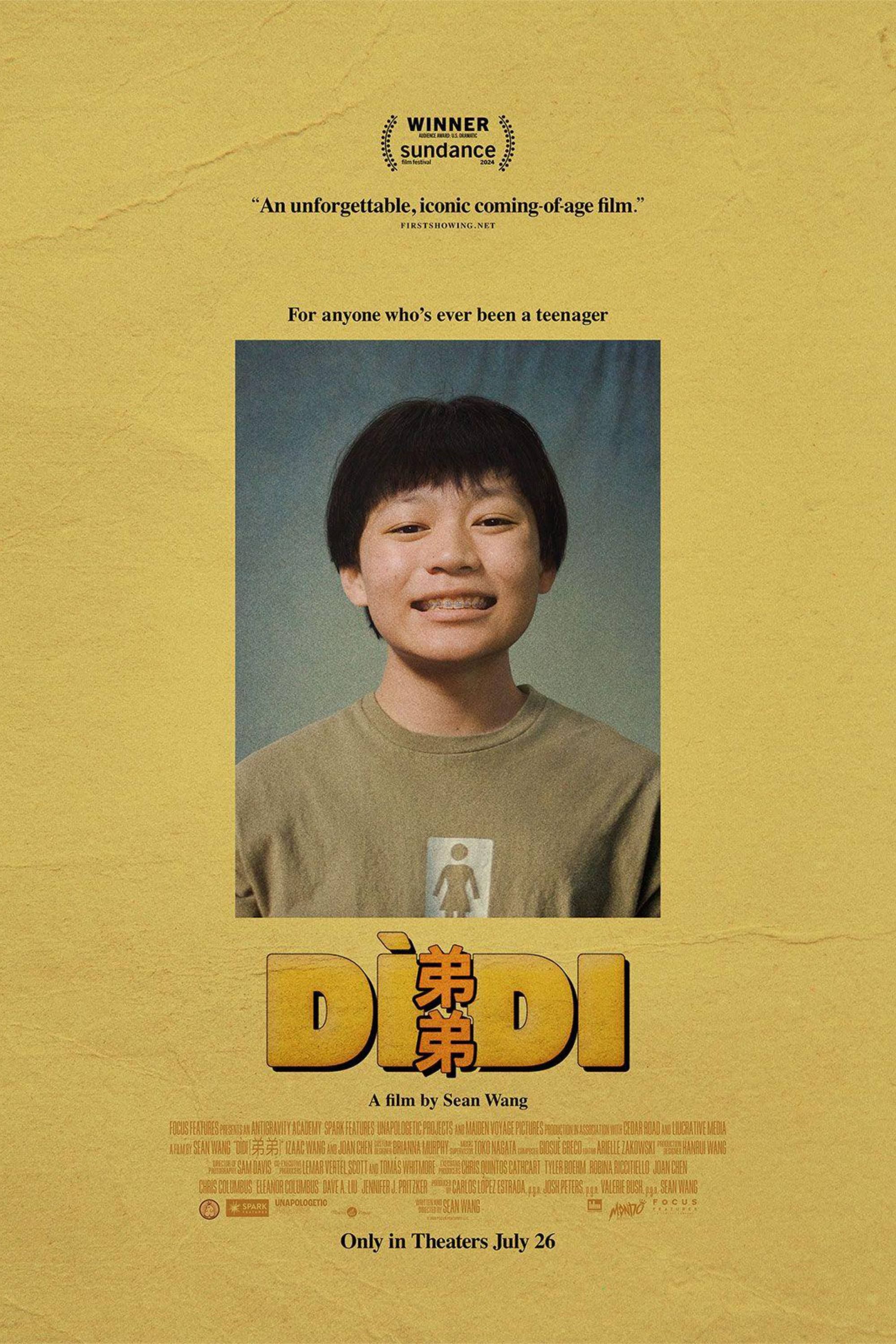Summary
- Didi provides authentic Asian American representation in a coming-of-age narrative set in the Bay Area suburbs.
- The film subverts common Asian American film tropes, focusing on the complex parent-child relationship and cultural identity.
- Didi offers a fresh, personal take on the AAPI experience, staying true to its roots and avoiding cliches for a genuine portrayal.
As an Asian American person who grew up in the suburbs of San Francisco, it is extremely rare ever to watch my life experience transposed on the silver screen. Sean Wang’s coming-of-age comedy Didi has suddenly filled that void. Normally, I have to latch onto the cinematic lives of others. However, this has grown to include more than just American media. It feels like most of the mainstream Asian representation today derives from films and television shows produced in other countries and hardly satisfies the feeling of seeing yourself on-screen represented authentically.
This isn’t as much a criticism of the industry as it is a crucial indication of how diverse the Asian American Pacific Islander experience is and can be within the cinematic landscape. Sean Wang’s Didi, starring Izaac Wang and Joan Chen, follows a young Taiwanese boy as he navigates his last summer before the beginning of high school. Based in the suburb of Fremont and set in the distant year of 2008, Didi perfectly encapsulates this hyperspecific version of the AAPI coming-of-age narrative, one that centers on a character who looks like me in the place where I grew up.
19:10
Related
Dìdi Director Sean Wang On His Semi-Autobiographical Tale Of Adolescence & Motherly Love [SXSW]
Dìdi writer and director Sean Wang discusses the inspiration for his new film, casting Izaac Wang, and his mother’s thoughts on the story at SXSW.
Didi Is Honest About Asian American Embarrassment
Didi Subverts The “Stinky Lunch” Narrative Trope
A common narrative archetype found within Asian American literature and cinema is the concept of Asian American embarrassment. Popularly commodified into the “stinky lunch” story, this form of embarrassment occurs when Asian ethnic culture is deemed inferior when compared to American sensibilities. In Didi, writer-director Sean Wang plays off this feeling in interesting and multifaceted ways, pitting Izaac Wang’s Chris against former friends, new friends, secret crushes, and nagging family members.
These feelings of isolation and rebellion resonate with my experience growing up in the Bay Area, especially as it relates to my AAPI identity.
As Chris learns to define how he wants to be seen in the world, he frequently lies or acts cool to bolster his status within the post-middle school social climate. He lies about his ethnicity, rejecting his full Asian identity for a half-white one. He pushes his mom away when she tries to connect with him, and he constantly picks fights with his older sister Vivian. He cuts off his friends after being rejected and excluded. These feelings of isolation and rebellion resonate with my experience growing up in the Bay Area, especially as it relates to my AAPI identity.
Didi Shows The Authentic Asian American Parent-Child Relationship
Didi Reimagines The Immigrant Parent Narrative Trope
At the core of this Sundance-winning feature film is a tense relationship between Chris and his mother Chungsing (Joan Chen), and Sean Wang’s depiction of this parent-child dynamic speaks so tenderly to the Asian American experience. Chris and Chungsing hardly share the perfect home life. The film’s dramatic tendencies hinge on their tumultuous relationship while exposing a common experience in the AAPI community.
Having grown up in the San Francisco Bay Area surrounded by a community of Asian American friends, I have witnessed how second and third-generation kids struggle to culturally communicate with their parents. Immigrant parents tend to expect highly of their children, which understandably clashes with America’s rather lax approach to a teenage upbringing. While the immigrant story has become somewhat of a cliche, Didi freshens this narrative trope by including the mother in Chris’ route to self-discovery. As Chris struggles to adjust to adolescence, so does Joan Chen’s Chungsing struggle against her displaced life in America.
Didi Subverts The Stereotypical Asian American Film
Didi Finds New Ways To Tell The AAPI Story
With the “stinky lunch” and immigrant stories, contemporary Asian American media has developed a handful of readily available narrative tropes that are repeatedly highlighted by American tastemakers or AAPI artists themselves. In general, these stories can become reductive and limit the scope of what the Asian American experience can be on-screen.
Sean Wang’s Didi aims to subvert these tropes simply by remaining personally authentic. Whereas the “stinky lunch” and immigrant stories favor a white audience, Wang’s directorial debut feels as if it were made by and made for the people in the film. It never prances into social justice conjectures and restrains from preachy overtures. It stays true to its homegrown qualities and never strays from the beaten path.

Dìdi (2024)
During the summer before starting high school, 13-year-old Chris Wang navigates the complexities of adolescence in a Northern California suburb. As he experiments with skating, social media, and first crushes, he also grapples with family dynamics and the pressures of growing up as a Taiwanese American. The story explores Chris’s journey of self-discovery, filled with both humor and heartfelt moments, while highlighting the cultural and emotional challenges he faces.
- Director
- Sean Wang
- Release Date
- August 16, 2024
- Cast
- Izaac Wang , Joan Chen , Shirley Chen , Zhang Li Hua , Mahaela Park , Raul Dial , Aaron Chang , Chiron Cillia Denk
- Runtime
- 94 Minutes


